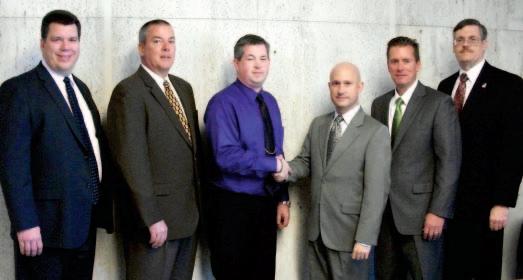ASSOCIATIONS IN ACTION
Protecting People, Property, and Brand Reputation A fter more than a year in my current role at the Food Marketing Institute (FMI), I’m reminded every day how there is no longer a clear divide between food and non-food when it comes to issues within asset protection, technology, or even the supply chain. The business needs of our retailing industry go well beyond the confines of definitions, and I’m motivated by our food retail members to construct and offer engagement opportunities across the aforementioned roles, including safety, risk management, crisis management, loss prevention, and food defense. In light of the challenges among these issues, one of my immediate goals is to reignite programs and build participation at FMI. FMI represents more than 1,500 retailer and wholesaler members, or about 75 percent of the supermarkets in the U.S. For these food retailers, the protection of people, property, and brand reputation is about focusing on operational efficiencies, internal processes, partnerships, and the mitigation of overall risk to an organization. Connections are crucial, and since food retailers play a critical role in our nation’s crisis management plan, we need to bridge the gaps between retailers and their local, state, and federal agencies and bring awareness to the role of these retail professionals.
For food retailers, asset protection has moved beyond the common shoplifter to defense against intentional tampering across a wide range of critical control points. New Leadership Councils. In recent meetings of several new leadership councils, our members discussed how to reengage our membership and trading partners across the areas of asset protection, risk management, safety, supply chain, and technology. Action items revolved around providing subject-matter expertise, advice, leadership, and support to advance the retail food industry. As a priority, these groups are currently working with FMI to provide frameworks for best practices regarding the identification, prevention, management, and mitigation of risk, in addition to developing strong business strategies though communication and education. Secondarily, the councils are advising FMI on regulatory
36
by Rhett Asher Rhett Asher is vice president of industry relations for the Food Marketing Institute, where he is responsible for the association’s asset protection, risk, and safety initiatives, including the annual Asset Protection Conference, Supply Chain Council, and Technology Leadership Board. Asher has over twenty years of retail store operations and trade association experience, including management roles with the National Retail Federation, Loss Prevention Foundation, National Food Service Security Council, and the Retail Industry Leaders Association. He can be reached at 202-220-0774 or rasher@fmi.org.
and legal issues and lobbying efforts, advising FMI on issues that are of importance to the well-being of the retail industry and guiding their participation in industry work groups. For food retailers, asset protection has moved beyond the common shoplifter to defense against intentional tampering across a wide range of critical control points: ■ Cargo to cyber to mobile-point-of-sale security, ■ Data analytics to effective C-level communications, ■ OSHA to workplace violence, and ■ Pharmacy to fuel fraud. Asset Protection Conference. At future FMI events, such as the Asset Protection Conference in New Orleans March 11 – 14, 2012, our committees are working to ensure that the educational value exceeds that of other industry shows. Next year’s conference will feature a series of professional development workshops led by collaborating partner organizations in order to drill down on these business system issues. Technology Summit. On the heels of the 2011 FMI Technology Summit, I’m able to reflect on how the newly reestablished Technology Leadership Council identified disaster recovery, food safety, data security, privacy, and mobility as relevant topics for its foundation. These ideas are helping to inform the council’s ultimate business plan, and over time, our common goals for the council will include advising and guiding FMI on the changing technology landscape. In essence, emerging technology will help food retailer professionals in all departments remain informed and equipped to protect their companies. Supply-Chain Conference. I recognize that industry partners are often the keys to the success of any program and enable strong communications across the entire supply chain. Therefore, I look forward to FMI’s upcoming work with the Grocery Manufacturers Association (GMA) on our 2012 Supply-Chain Conference. FMI and GMA will bring to life ProductivityPlus, a tactically focused add-on day aimed at distribution and transportation professionals in an effort to foster supply-chain efficiency, reduce costs, and drive value. We recognize that it’s through our trading-partner alliances that we’ll be able to truly measure our supply-chain successes. We are a competitive industry, but we leverage this energy to ensure the food supply is safe, efficient, and delivers on customer satisfaction. Our businesses and our supply chain is a fluid and value-driven process that is not bound by a strict methodology, and retailers remain nimble…no matter the SKU.
noveMber - DeceMber 2011
|
LPPortaL.coM







